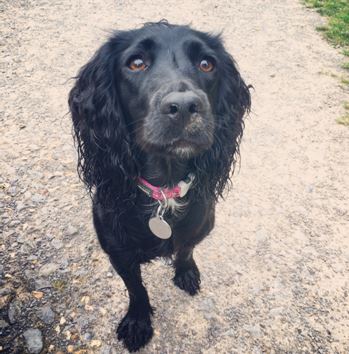Jessica Worthington recently got in touch with this pledge, which we felt we should share with our pack. Grab a coffee and take a minute to learn a little more about Alabama Rot.
What is CRGV?
Cutaneous and Renal Glomerular Vasculopathy (CRGV or ‘Alabama rot’) is a serious disease which has only recently been recognised in dogs in the UK. It causes lesions on the skin and occasionally in the mouth, which can look like bites, sores, wounds or stings. Some dogs go on to develop life-threatening kidney failure. Any age, sex, or breed of dog can be affected. The disease has been under investigation by Anderson Moores Veterinary Specialists (working closely with a number of other organisations) for as long as the disease has been in the UK. Many possible causes, such as common bacterial infections and exposure to toxins, have been ruled out.
CRGV is a disease caused by damage to blood vessels of the skin and kidney. It causes tiny blood clots to form in the blood vessels which blocks them and can ultimately lead to damage of the affected tissue. In the skin, this causes ulceration; however, in the kidney it can lead to severe organ dysfunction (kidney failure). CRGV has not been seen in animals other than dogs. Owners of dogs affected by CRGV have not been affected by this illness in these cases.
CRGV- The facts
CRGV has been known since the late 1980’s in the USA. Since 2012 there have been 94 confirmed cases across the UK including in the New Forest area where the disease first became apparent. Unfortunately the disease cannot be confirmed unless a fatality occurs. The definitive diagnosis of CRGV is made by histopathological assessment of the kidneys at post mortem.
The cause at this time remains unknown but investigations are ongoing, an environmental cause for this disease is considered possible but it has not been proven with testing to date. Recent work by the senior curator of herbology, from the Natural History Museum, suggests that plants are an unlikely trigger for CRGV. Since 2012, more CRGV cases have been seen between November and May than between June and October, suggesting a possible Winter / Spring seasonality.
Treatment Options
CRGV is treated symptomatically. Skin lesions are usually managed with antibiotics to stop secondary infection and daily blood testing is indicated to check kidney function. Patients usually undergo intravenous fluid therapy to help support the kidneys during their hospital stay. Urine output is monitored and urine is tested to check protein levels. If evidence of kidney injury becomes apparent then there are various treatment options, many of which are very invasive and high risk. Treatments include
• Plasma Exchange- A process in which the patient’s blood is removed from the body, separated and plasma removed and replaced for donor plasma.
• Plasma transfusions- In which donor plasma is infused into the circulatory system.
• Dialysis- Which uses an artificial device to clean the blood of waste products.
Unfortunately despite numerous treatment options prognosis is still very grave. If a patient with CRGV develops kidney injury there is a ninety percent fatality rate.
Pippa’s story
I lost my beautiful dog Pippa to this cruel disease on the 15th December 2015 after an innocent, fun walk in the woods with my other dog Molly. They both developed skin lesions but 4 days later Pippa started to show signs of kidney damage.
Anderson Moores Veterinary Specialists referred her to the Queen Mother Hospital for Animals (RVC) for Plasma Exchange, plasma transfusion and Dialysis treatment. Despite intensive and aggressive treatment, the disease had taken over and she could not be saved. My dogs are my absolute world and this disease has left me truly, truly heartbroken. I am without my baby girl and Molly is without her sister.
Fundraising
A few weeks at home living without Pippa urged me to start fundraising to help develop research into this relatively unknown disease. I do not want any other dog owners to feel the heartache that I am living with.
All money raised will be donated to The Alabama Rot Research Fund. Research into new diseases requires a lot of funding. This pays for the development of new diagnostic tests, investigation of the causes of the disease and ultimately the development of more effective treatments which could help numerous dogs in the future.
Pippa’s charity facebook page is ‘Pledge for Pippa. Stop Alabama Rot’
For information regarding the charity and disease www.arrf.co.uk is that best place to go.


